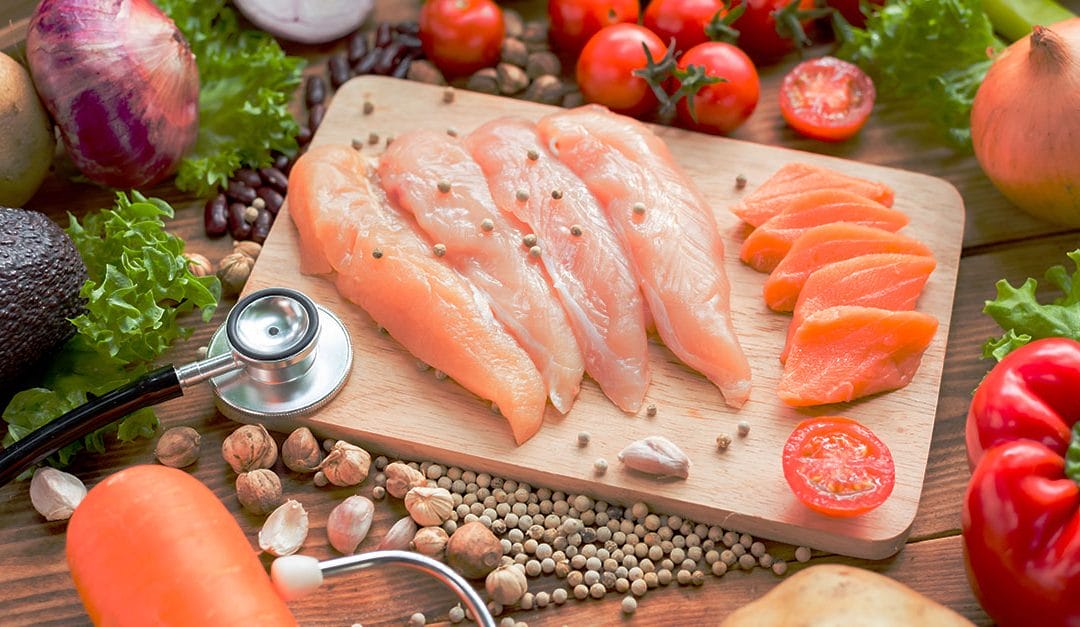How To Maximize This Nutritional Building Block In Your Daily Diet
March is National Nutrition Month, so over the next four blog posts, we’ll cover some of the core building blocks of nutrition, including oils, fiber, and superfoods. First up: We talk about proteins.
What Is Protein?
Protein is what’s called a macronutrient, and is chemically composed of amino acids. One of three macronutrients (the others are fats and carbohydrates), the human body uses protein to build and repair tissue, as well as to produce vital enzymes, hormones, and other body chemicals. It’s important to just about every part of your body, as it facilitates organ and limb growth, bone and muscle healing, and much more.
Some of the best sources of protein include eggs, milk, yogurt, fish, chicken, and turkey. Recently, we’ve discussed nonmeat sources of protein, but what are known as complete proteins are found primarily in animal sources—while plant-based proteins typically lack one or more of the nine essential amino acids. This is why vegetarians and vegans must be sure to consume a variety of plant-based proteins in order to ensure they get all the necessary amino acids in their diet.
Choosing Healthy Proteins
Keep in mind, however, that not all animal proteins are created equal. Fish and poultry are the healthiest choices when it comes to picking an animal protein, because red meats are higher in saturated fats and calories. If you want to eat beef or pork, make sure you control the portion size, choose leaner cuts (such as beef or pork tenderloin and New York strip), and include it in your diet less frequently than fish and poultry. The best fish sources of protein include yellowtail, salmon, trout, snapper, and grouper. Tuna is high on the list as well, but limit your overall tuna consumption to make sure you don’t ingest too much mercury.
One animal protein source to largely avoid is processed meats such as hot dogs, ham, corned beef, canned meat, and beef jerky. The World Health Organization (WHO) has linked processed meats to colorectal cancer and classifies them as carcinogenic.
How Much Protein You Need
One last important thought: The body cannot store protein for later use and therefore requires a steady supply. To determine your approximate daily protein requirement, use this calculator or simply multiply your weight in pounds by 0.36 (and double the result if you lead a very active lifestyle). That number is your recommended daily allowance of protein in grams.
Up next time: The Truth About Oils.
The Pickled Beet incorporates all essential dietary elements into many tasty and healthy recipes for our Miami clients. We work with individuals, couples, and families to find meals that are flavorful, healthy, and best fuel the body no matter what nutritional requirements might be part of the equation. Contact us for a free consultation.


